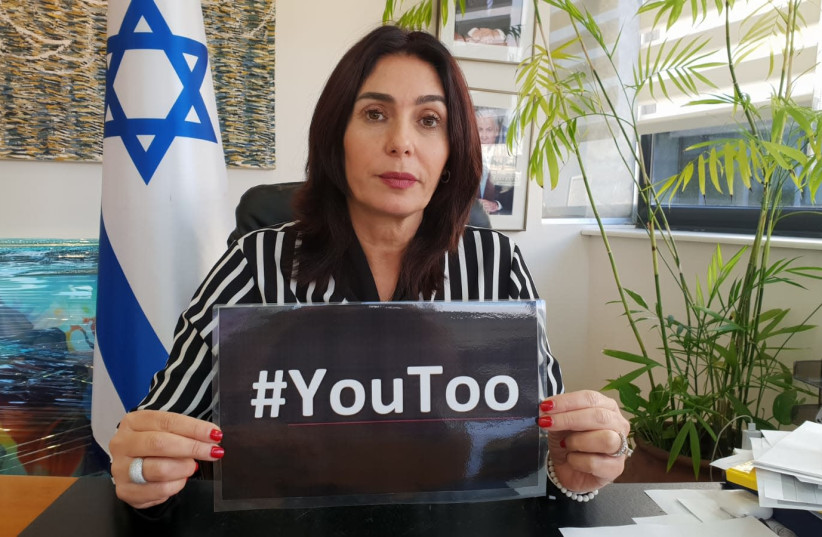When it comes to its leadership’s understanding of the reality faced by women filing complaints about sex offenses, Israel seems to be taking one step forward and two giant leaps back.
In July, Public Security Minister Omer Bar Lev announced he would appoint an advisor on violence against women, saying that he will review with her the procedure for filing complaints about sexual violence.
“I understand that filing a complaint about a sexual offense is a painful process that requires great mental strength,” Bar Lev said at the time.
This recognition was pivotal and critical in a country with a broken system that does not enable victims of sex offenses to file complaints in a safe and effective manner.
Israel Police regularly mishandle sexual offense cases and mistreat the victims, according to preliminary findings of a University of Haifa Clinic for Legal Feminism study published in June.

Women’s organizations also regularly point to flaws in how authorities handle sex offense complaints. The word "abandoned," according to Jerusalem SlutWalk, “highlights the treatment we get from the state: the victim-blaming that we encounter from police; the ease with which violent men are released back to their homes to continue to harm women; [and] authorities that release rapists and attackers – if they are punished at all.”
So the public security minister's acknowledgment of the difficulties faced by victims seemed like an important and positive statement regarding Israel’s treatment of victims moving forward.
On Sunday, however, Intelligence Minister Elazar Stern casually stated in an interview to 103 FM that, as a major-general when he was head of the IDF Manpower Directorate, he used to shred anonymous complaints submitted against soldiers.
Stern was quick to emphasize that he always created an atmosphere in which soldiers could report offenses against them and that his problem was with anonymously submitted complaints.
While Stern clarified that he would always encourage soldiers to file sexual harassment complaints, his words highlighted a critical problem – understanding the reality faced by victims.
In many cases, victims do not feel they can safely complain about sex offenses. This is especially true in the IDF, where relationships between soldiers and superiors are strict and hierarchical. Victims also know that sometimes it is “not worth it” to make a complaint because of how slim the chances are that they will see real justice.
Some 84% of cases of sex offenses that made it to the State Attorney were closed in 2019, with an indictment issued in just 16% of them, according to Israel’s Association of Rape Crisis Centers (ARCCI). Rape was the offense with the least amount of indictments issued versus cases closed, with an indictment in just 8% of the cases.
Even if Stern was not referring specifically to anonymous sexual assault complaints, his dismissal of such complaints could be interpreted that way. His statement seems to show a deep lack of understanding of the reality faced by victims of sex offenses.
The bottom line is that without such an understanding, authorities cannot make the desperately needed improvements in the treatment of victims and the handling of their cases.
Without making these improvements – without making it safe and effective to come forward – we should not expect anyone to make a report with his or her name on it.
